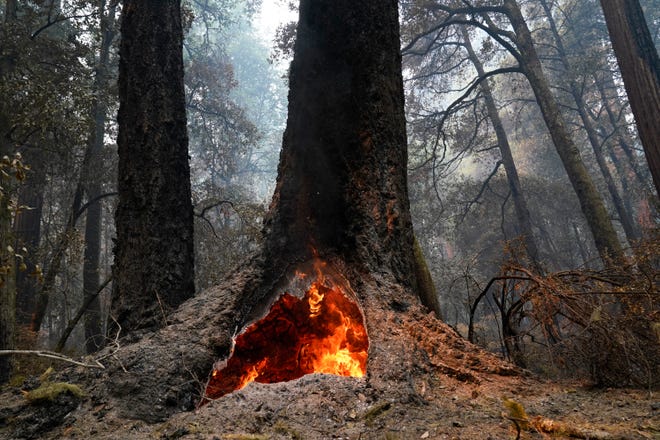
Spiritual Sunday
We are facing so many simultaneous disasters—Covid19, economic collapse, resurgent white supremacy, climate change (currently manifesting itself in unprecedented wildfires, hurricanes, and heatwaves) that apocalyptic warnings can sound tired and stale. I think this is Richard Wilbur’s point in “Advice to a Prophet.”
Perhaps imagining a Jehovah, the poet sees a prophet’s arrival as inevitable:
When you come, as you soon must, to the streets of our city,
Mad-eyed from stating the obvious.
Not proclaiming our fall but begging us
In God’s name to have self-pity.
If we are to truly care for ourselves, however, we can’t simply be told we face annihilation, whether by means of long-range rockets or something else. Such an appeal will not touch our hearts or imaginations:
Spare us all word of the weapons, their force and range,
The long numbers that rocket the mind;
Our slow, unreckoning hearts will be left behind,
Unable to fear what is too strange.
Nor shall you scare us with talk of the death of the race.
How should we dream of this place without us?—
The sun mere fire, the leaves untroubled about us,
A stone look on the stone’s face?
Focus instead, the poet tells us, on those small losses—especially in nature (“the world’s own change”)—that sear our souls. Think of losing “the dolphin’s arc, the dove’s return.” The images he offers up are not earth-shattering but as a result are all the more powerful: the white-tailed deer slipping away, a lark avoiding “the reaches of our eye,” a jack-pine losing “its knuckled grip/on the cold ledge” and tumbling into the gorge. We ourselves could be that pine, hanging on for dear life:
Speak of the world’s own change. Though we cannot conceive
Of an undreamt thing, we know to our cost
How the dreamt cloud crumbles, the vines are blackened by frost,
How the view alters. We could believe,
If you told us so, that the white-tailed deer will slip
Into perfect shade, grown perfectly shy,
The lark avoid the reaches of our eye,
The jack-pine lose its knuckled grip
On the cold ledge, and every torrent burn
As Xanthus once, its gliding trout
Stunned in a twinkling. What should we be without
The dolphin’s arc, the dove’s return…
I myself have used the image of the burning Xanthus River to capture the horrors of climate change. Fire from the blacksmith god Hephaistos blasts the vegetation and scalds the fish to beat back a river:
Then against the river
Hephaistos turned his bright flame, and the elms
and tamarisks and willows burned away,
with all the clover, galingale, and rushes
plentiful along the winding streams.
Then eels and fish, in backwaters, in currents,
wriggled here and there at the scalding breath
of torrid blasts from the great smith, Hephaistos…
Because we see our spiritual selves in nature’s mirror, we lose the “rose of our love,” the “horse of our courage,” the “singing locust of the soul unshelled” when the glass is “obscured or broken.” Nature calls “our natures forth,” giving us a “live tongue” that helps us say “all we mean or wish to mean”:
These things in which we have seen ourselves and spoken?
Ask us, prophet, how we shall call
Our natures forth when that live tongue is all
Dispelled, that glass obscured or broken
In which we have said the rose of our love and the clean
Horse of our courage, in which beheld
The singing locust of the soul unshelled,
And all we mean or wish to mean.
The poem ends with a dark question: even Dante’s divine rose, found in paradise (“worldless rose) will not sustain our hearts if it is not grounded in an actual worldly rose. Our vision of the “lofty and long standing” require actual oaks in our lives—or, should I say, redwoods, many of which are burning in California’s devastating fires. The “bronze annals” of manufactured human history only appear majestic when we have things like trees to compare them to:
Ask us, ask us whether with the worldless rose
Our hearts shall fail us; come demanding
Whether there shall be lofty or long standing
When the bronze annals of the oak-tree close.
In other words, if the prophet wants to get our attention, he or she will emphasize how all the we value, the soulful parts of ourselves, are inextricably entwined with the natural world.